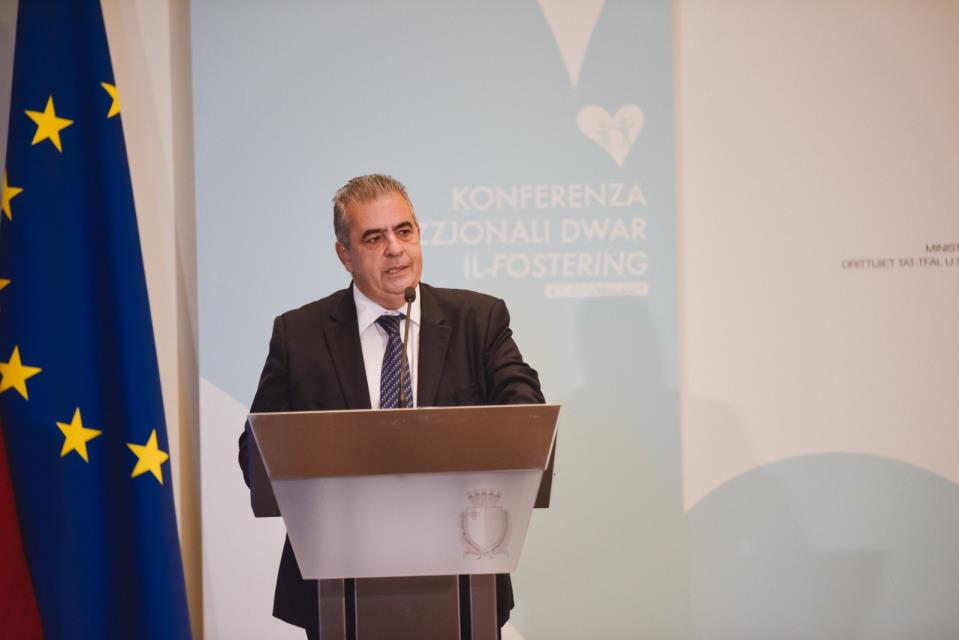The government is investing €1,200,000 for 217 foster carers who take care of 247 foster children, Prime Minister Joseph Muscat said at the National Fostering Conference today.
Fostering is not an easy topic and brings about different emotions, such as anger, sadness and even lack of reassurance for both parents and children. “Family is a necessity in our society and plays a role in both education and support, he said.
He said that the law offers foster carers the possibility to adopt their child after five years and in certain cases even after three years. Foster caring changes people’s lives, added Muscat.
Although foster carers do not do go into fostering for the money, he said that the government felt it as its duty to aid foster families. Muscat added that in the next budget the Government will continue to push forward to help those in vulnerable situations. “It is important that no one is afraid to report cases of abuse, especially in the case of child abuse or neglect. One must not mistake cases of abuse with cases of discipline, but we are speaking about when a child is neglected, abused or disrespected by their parents.”

Working forward for the best interest of the child
Family, Children’s Rights & Social Solidarity Minister Michael Falzon said that this National Fostering Conference was another step forward with the intention of always aiming for the best interest for children. He said that social workers, foster carers and other people in this sector must work together to ensure the best interests of the children.
“When a child is removed from their biological family for whatever the reason, they have two options of where to go, that is either a home or a foster family. Speaking as Michael Falzon I prefer the child to go to a foster family.” He explained that he did not wish to speak against such homes, instead thank them for the service they provided, yet he believed that the love and comfort provided by foster carers helps children more. Falzon also added that a weekly allowance for foster carers has increased from €70 to €100.
Number of foster carers has increased from 208 in 2017 to 217
The number of foster carers is slowly increasing, explained Operations Manager for Social Welfare Services Josephine Muscat. In 2017 there were 208 foster families and 230 children who were fostered, out of which 64 cases were on voluntary basis, 132 Care protection Order cases and 34 Court Order cases. In 2019 out of the 247 children who were fostered, 66 cases on voluntary basis, 146 were Care protection order cases and 35 were Court order cases.
“Our mission is to provide a quality and enlightened experience for children in foster care placements,” explained Muscat. She also went into detail the reasons as to why children are foster and the fostering procedures.
CEO of FSWS Alfred Grixti said that one must emphasise on fostering and the protection of children. He explained that it is the Foundation’s goal to make sure that children who are in foster care are taken care of and that the foster placement provides safety and is the best for the child.
Grixti explained that it is important to not privatise fostering and quoted British articles which stated that private fostering is 92 per cent more expensive than local ones. He stressed that fostering should not be commercialised or prioritized, but should continue to provide support to foster parents and children. He was pleased to see that the number of foster families was increasing, but he said that more are requested and this can happen by increasing the benefits given to foster carers.
Matthew Vella, CEO of Social Care and Standards Authority said that it was important to continue to work towards the best interests of children and stressed on the importance of quality. “Before we used to adopt standards from other countries, but now we are adapting our own standards and other countries look to us in interest.” He said that foster care standards must reflect the need and voice of the children and that those involved in policy making must be fully aware of that.